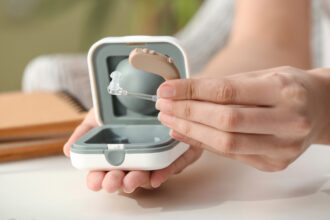What To Consider Before Buying Health Insurance

The high chances of being struck by lifestyle diseases like hypertension and diabetes and the persistent spike in the medical inflation rate have resulted in increased adoption of health insurance. In addition, over the last one and a half years, fuelled by coronavirus and its impact, people have become even more concerned and aware about securing and planning their lives.
The ongoing pandemic has also led people to be mindful of their financial well-being. This is a crucial reason why a majority of people are opting to cover themselves and their families under a health insurance plan. To help one do the same, below are some key aspects that must be taken into account when planning to purchase a health insurance policy.
Individual Policy vs. Family Floater Plan
People with families must decide if they want coverage for all the members under individual health plans or via a family floater plan where the same policy is shared by all members. It is ideal for individuals with spouses and dependent kids to be covered with health insurance under a family floater plan since it is relatively more economical. But if the kids are above 25 years of age, they must be covered under individual health plans.
Sum Insured
The coverage amount, i.e., the sum insured of the health insurance plan requires careful consideration. For those not familiar with the term sum insured, it is the maximum amount that is compensated by the insurance company to the policyholder in the event of hospitalization. Pick a comprehensive health plan with maximum coverage by factoring in family medical history, size of the family, age of the members to be insured, and other such important factors.
Waiting Period
On purchasing a new health insurance policy, take note that not all illnesses are covered from the first day and a specified waiting period needs to be served to receive certain coverages. There are three kinds of waiting periods that one needs to know: a 30-day initial wait period that covers accidental hospitalization, a disease-specific two-year waiting period for slow-growing diseases, and a waiting period for pre-existing conditions.
Sub-Limits
Often when purchasing health insurance plans with cheaper premiums, people get plans that have co-payment and sub-limit clauses linked to them. Such plans are comparatively less expensive than regular plans that come without co-payment or sub-limits. Although this may lower the premium payable up to a certain limit, it can up the cost when one makes a claim.
Dental Care Basics For Healthy Teeth
Almost every single activity that one does every day involves their mouth. Be it eating, drinking, laughing, speaking, smiling, or having fun, the mouth is possibly involved. Good oral health maintenance can help keep the teeth clean always. Maintaining a home regimen of oral hygiene care and having dental examinations and cleanings every year will help in keeping one’s mouth as healthy as possible and detecting problems before they worsen.
Is Plaque inevitable?
Plaque is a sticky, clear film that covers the teeth after one eats or drinks. If it’s not taken out, it can lead to gingivitis and dental caries. Foods and beverages that are sugar- and carbohydrate-heavy are particularly susceptible to causing bacteria in the mouth. When the bacteria isn’t eradicated by flossing and brushing, they gather between the crevices of the gums and teeth and are transformed into tartar or calculus deposits. This marks the start of gingivitis and can lead to one losing their teeth. If left untreated, periodontitis can be formed by gingivitis and can leave one with no teeth, causing the loss of some of the jawbone.
Signs of Gingivitis
One may not notice they have gingivitis because it often presents itself asymptomatically. However, make a dental appointment in case of these signs: purplish/dark red/discolored gums, gum bleeding on brushing/flossing, bad breath, gums swollen or inflamed, loose teeth, changes in the bite, and sensitivity to sugary foods or cold and hot temperatures.
Oral Health Basics
Before bedtime, brush for a minimum of two minutes.
Every quarter or after one has fallen ill, change the toothbrush.
Flossing every day is crucial in order to get rid of food particles stuck between the teeth.
Use an American Dental Association-approved antibacterial mouthwash to eradicate bacteria missed during flossing and brushing. Ensure the mouthwash is swished around in the mouth for 30 seconds.
Avoid food and beverages that are high in sugar and carbohydrates as they mingle with the bacteria in the mouth and pose a danger to the tooth enamel, eventually destroying it.
Have a personal dentist who can be visited regularly. The American Dental Association suggests going for cleanings and checkups twice a year, annually at a minimum.


